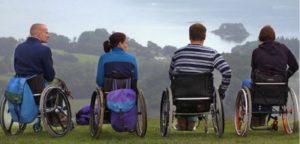Executive Summary
Maintaining optimal health and well-being after sustaining a spinal cord injury (SCI) can be a challenge. Common secondary health conditions like pressure sores, spasms, chronic pain, and urinary tract infections often negatively affect quality of life (QoL) and social participation (involvement in life situations). Although QoL and participation are frequently researched topics, there is still a lack of consensus on how to define these constructs and how to effectively measure them.
The Participation and Quality of life (PAR-QoL) Tool-Kit is an educational resource to support SCI clinicians and researchers with the outcome tool selection process. The website provides information about which QoL and participation outcome tools have been used to assess secondary health conditions, and details: 1) whether the tools are sensitive to secondary health condition impact; 2) whether they are psychometrically and/or clinically sound (valid, reliable) for use in the SCI population; and 3) the underlying QoL construct of each measure. By providing this information, we hope the PAR-QoL website will serve to educate SCI professionals about QoL and participation, which will in turn improve clinical practice and research.
Funding for this project is provided by the Paralyzed Veterans of America (PVA) Education Foundation, Ontario Neurotrauma Foundation (ONF), and the Quebec Rehabilitation Research Network (REPAR).

